In This Issue
The opinions, beliefs and viewpoints expressed in this publication are those of the authors. They do not necessarily reflect the opinions, beliefs, viewpoints or official policies of Autism Society Alberta. |
|
|
Medicine Hat Autism Society
Live in the Medicine Hat area? Check out the Medicine Hat Autism Society, just newly formed this month! Click on the link below and LIKE their Facebook page. Congratulations to all who helped to get things started!
https://www.facebook.com/medicinehatautismsociety
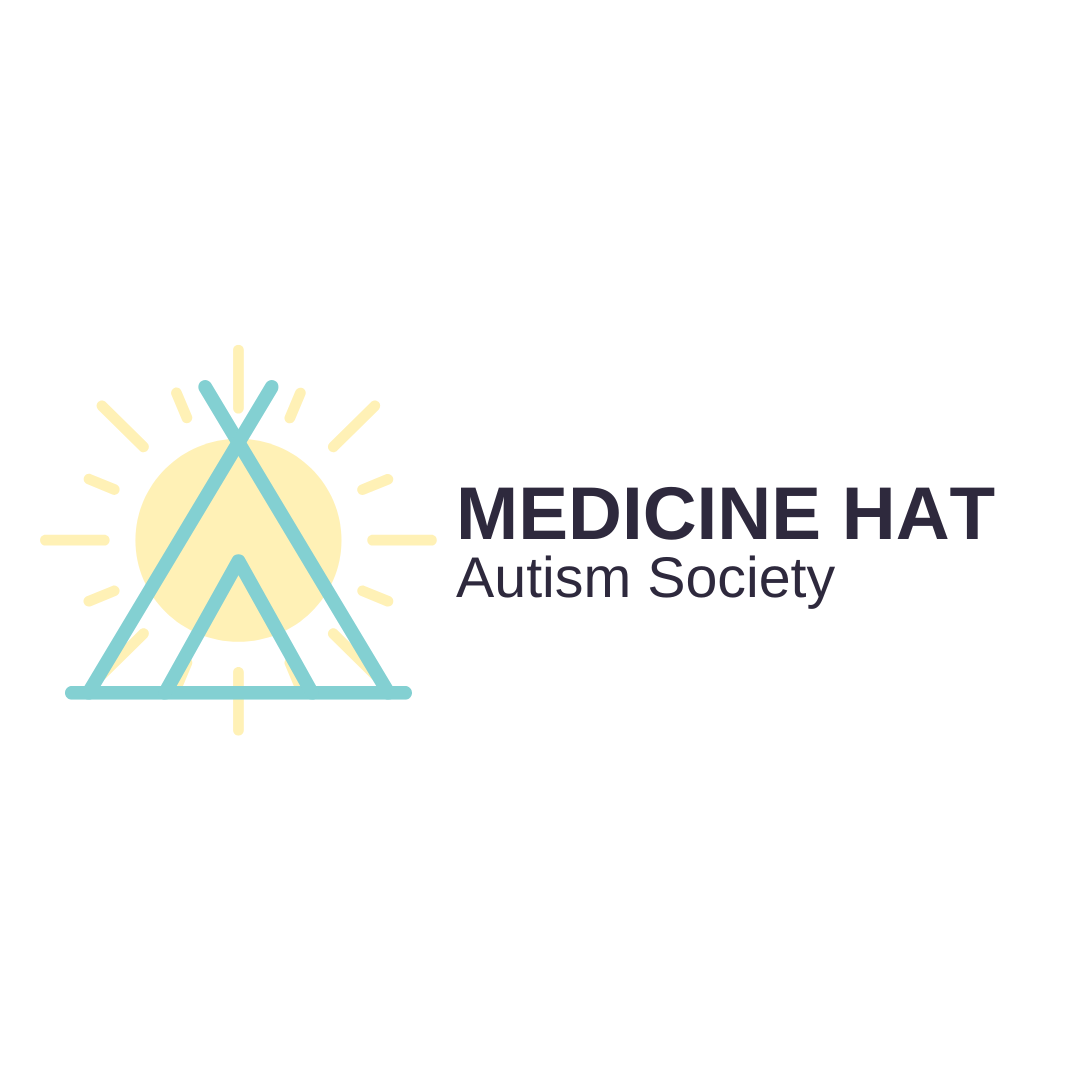
|
|
|
Part of Their World
Karla Power
When we first learned of Paddy’s autism diagnosis, we did a lot of research on what to expect. Many of the things that came up were social communication issues, to the point of them being in their “own world.”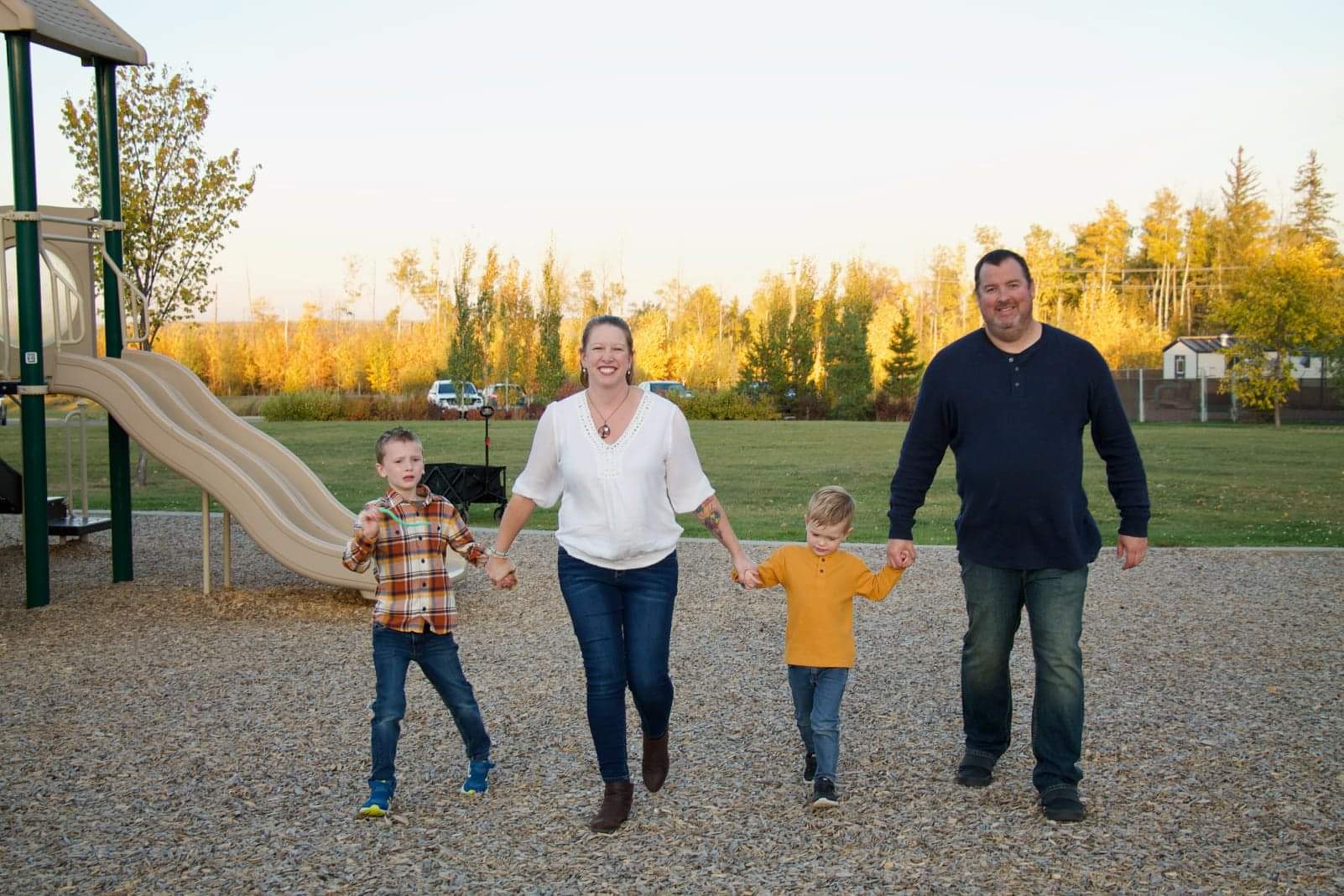 Since Paddy was a very serious baby, this made a lot of sense. Since Paddy was a very serious baby, this made a lot of sense.
For years we worked on building a connection with Paddy, encouraging eye contact and engagement in play. Some days felt so lonely because even though we were trying our best, we still had a toddler who did not seem interested in playing or communicating with us.
As the years went by, we slowly noticed a change in Paddy. He began making eye contact and tolerated being around people more. I believe that school and daycare had a huge impact on this change!
Nowadays, Paddy not only tolerates being around people, but he 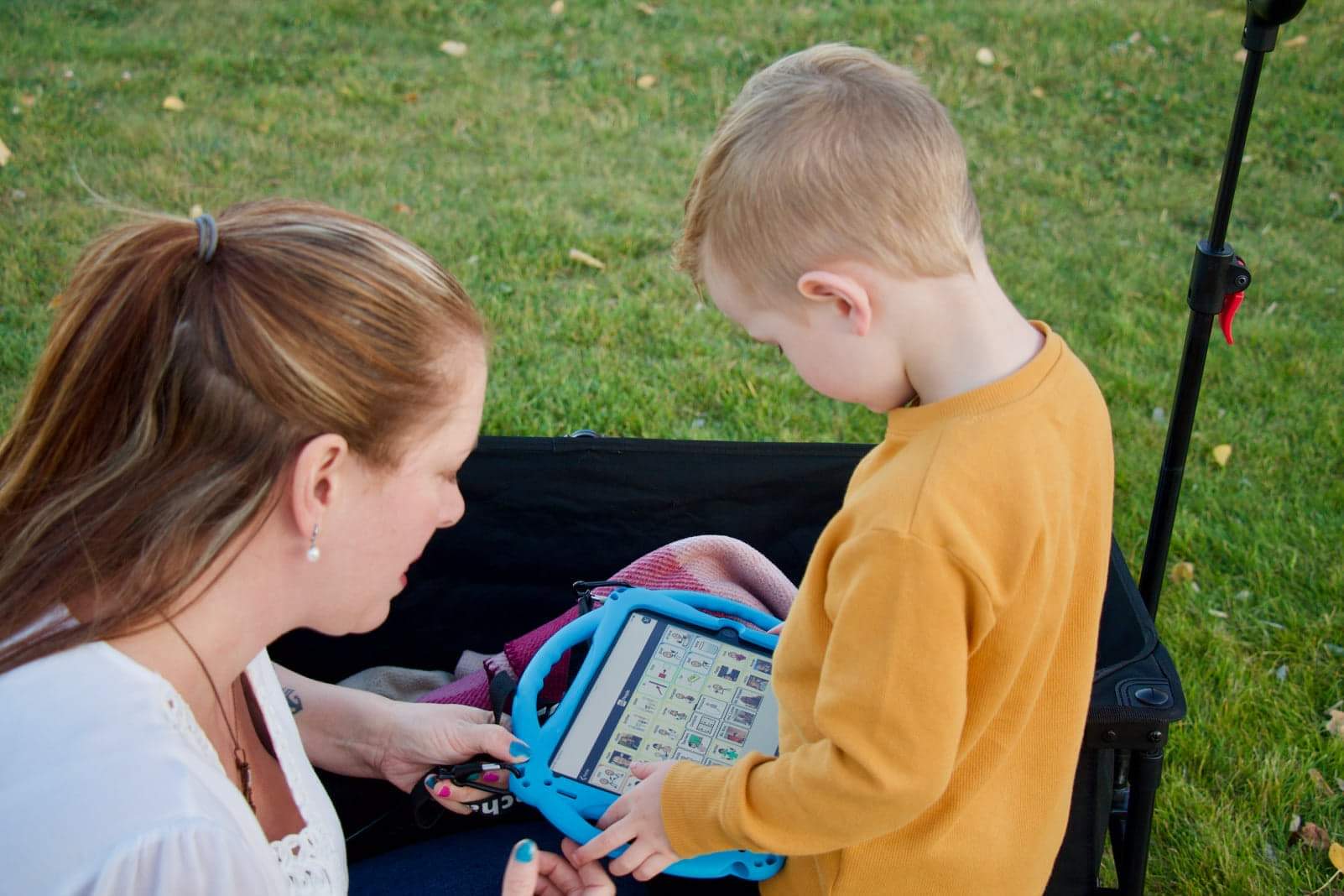 genuinely seems to enjoy it. He has shown a preference towards peers in class, indicating a desire for friendship. He has even had a few magic moments with teachers and EAs, initiating a hug or a chasing game with them. genuinely seems to enjoy it. He has shown a preference towards peers in class, indicating a desire for friendship. He has even had a few magic moments with teachers and EAs, initiating a hug or a chasing game with them.
At home, Paddy has fully let us into his world. He grabs our hand and our attention when he needs something, and has come to expect daily snuggles. Paddy is now playful (although he still doesn’t love toys), and is full of laughter and smiles at times.
Kelton, on the other hand, seemed to be born social. Although he is also on the spectrum and non-verbal, his desire to interact and communicate is quite strong. However, Kelton can be a bit rigid and ritualistic, which can sometimes make connections difficult, especially with his peers. He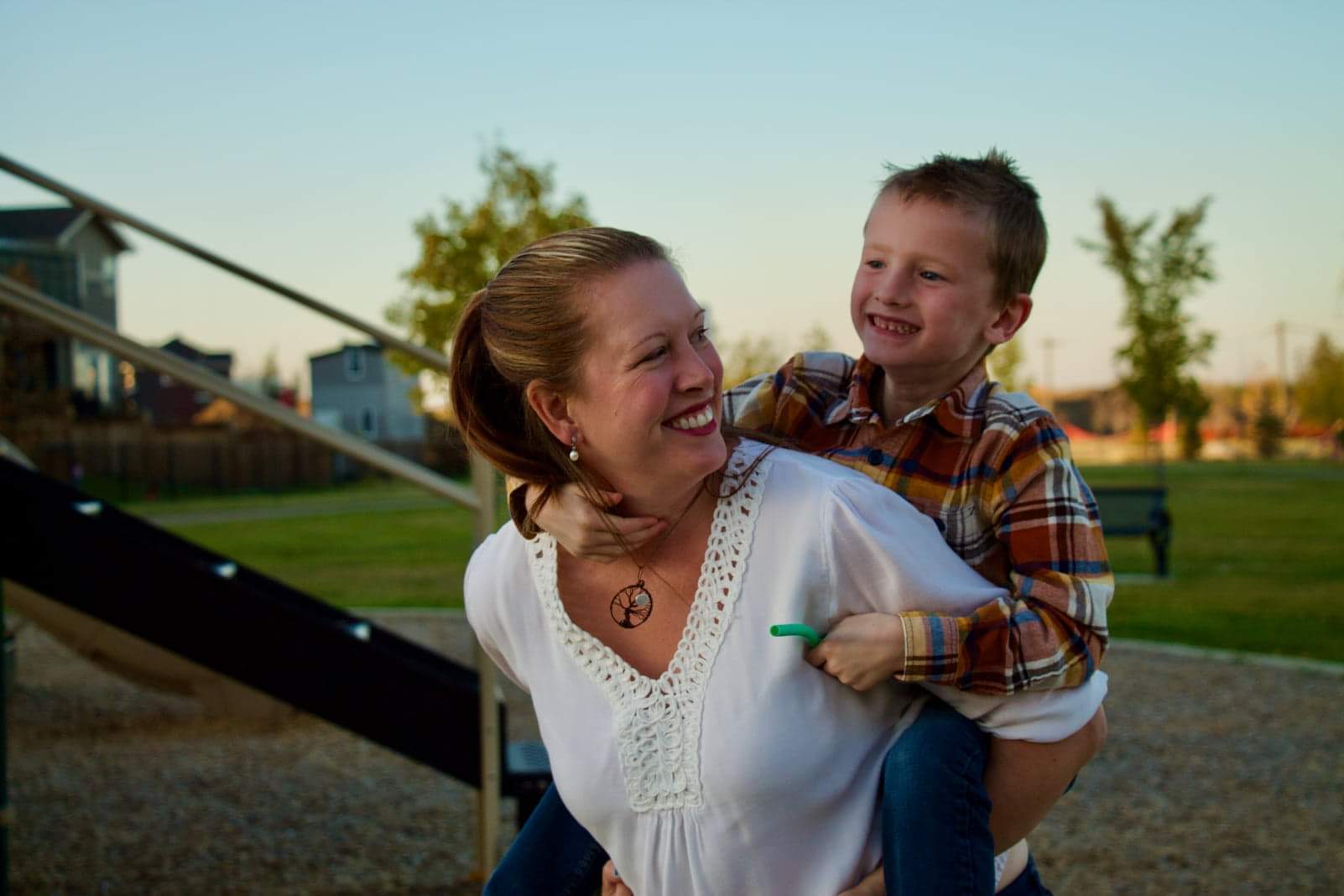 seems to have an easier time letting adults into his world, likely because we are a bit more persistent about sharing and connecting. seems to have an easier time letting adults into his world, likely because we are a bit more persistent about sharing and connecting.
I recently recorded a song that I wrote back in April entitled “Part of Their World”. I felt inspired to sing about the unique things that my children enjoy (Kelton loves nests of toys, and Paddy has quite the silicone straw collection). Although this is not how I envisioned my parenting journey to be, these amazing humans have taught me so much, by allowing me to be part of their world.
As parents, we appreciate those who make the effort to be part of their world and truly accept them for who they are. We also hope those people know how special it is to be given a hug or smile from our boys, and to be invited into their world.
Click here to watch the video and learn more about our world.
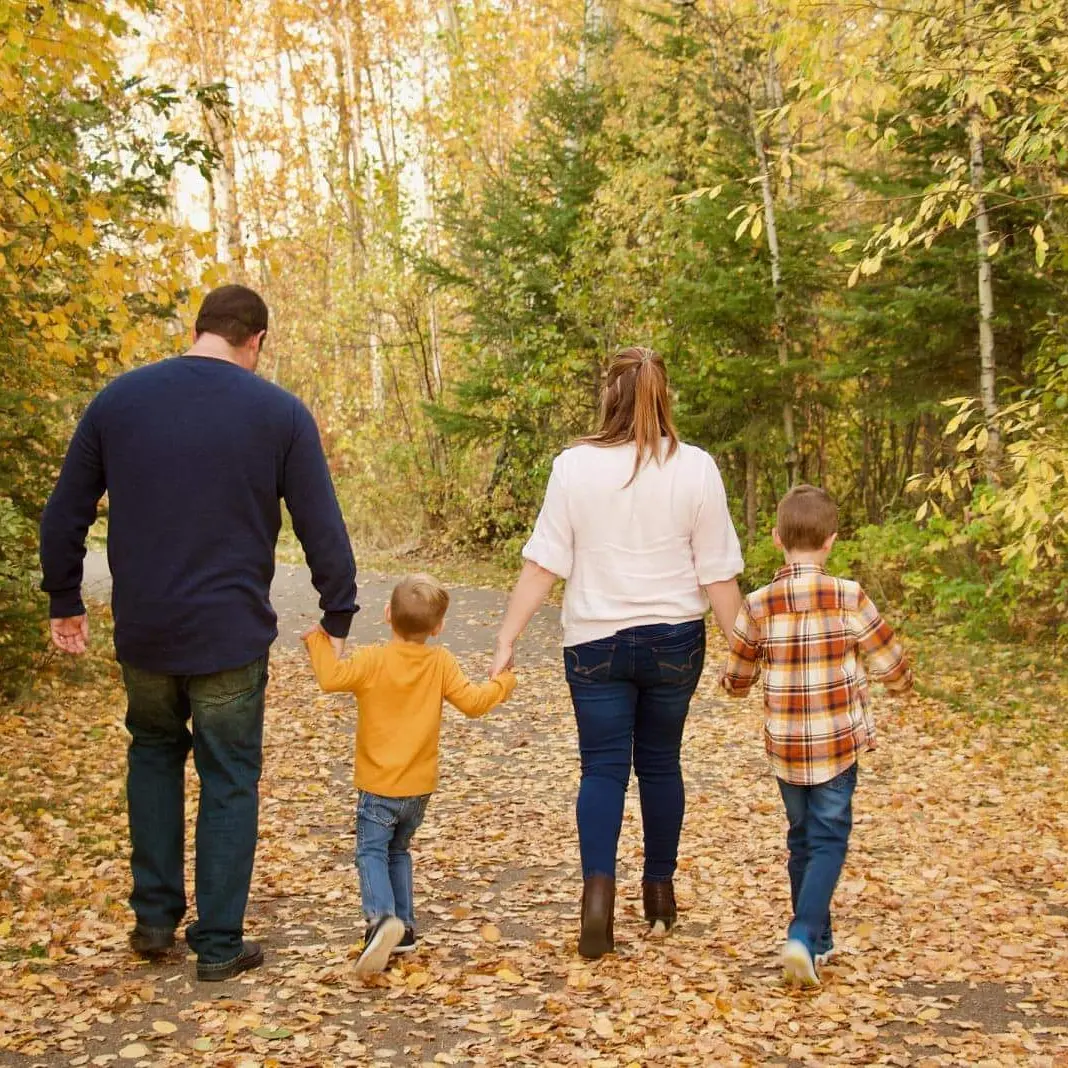
|
|
|
Sinneave Family Foundation
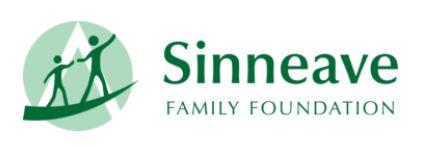
November 22 is National Housing Day!
In recognition of the day, we are pleased to offer Autism and Affordable Housing: Promoting Action by Sharing Lessons Learned, an informative webinar that will highlight almost a decade’s worth of lessons learned by our housing team. This free, hybrid presentation is offered in partnership with AIDE Canada. While you are most welcome to participate online, we want to extend an invitation to Calgary and area residents to join us in person at The Ability Hub (3820 24th Avenue NW) from 1:30 to 3:00 p.m. MST
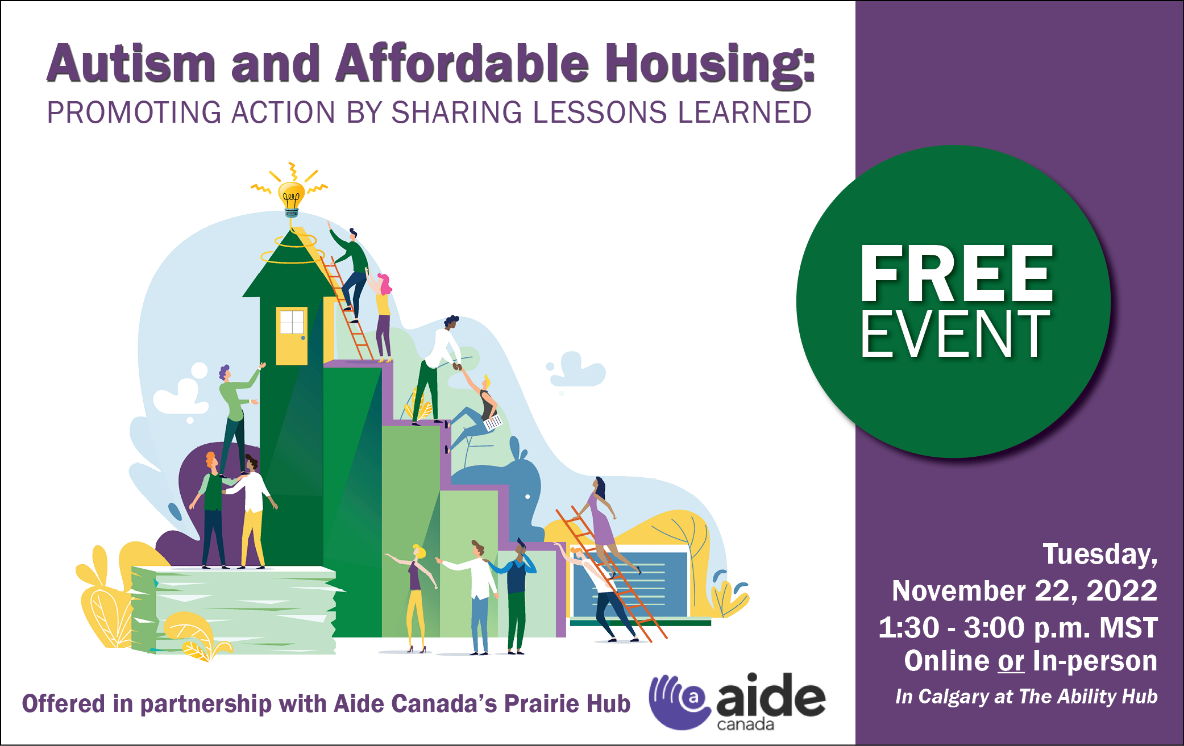
Over the years, Sinneave has worked with autistic adults, their families, affordable housing providers, and support agencies to help many autistic adults find a home of their own. As such, we are passionate about promoting action in the community that will enhance housing opportunities for autistic individuals. You’ll find the content of this presentation to be practical and relevant for housing providers, support agencies, autistic and neurodivergent adults, and their support networks.
About the Presenters
Carolyn Dudley – Knowledge Exchange Facilitator, The Sinneave Family Foundation
Carolyn has worked at Sinneave in research, policy, and housing for many years. In her current role, she interviews autistic adults and their families on the process of finding housing, what works, and what doesn’t work. The knowledge gathered over many years and the lessons learned will be beneficial to a wide audience.
John Seigner – Housing Specialist, The Sinneave Family Foundation
For over 10 years, John has helped many adults and their families find affordable and supported housing. John will share examples of the lessons learned through working with autistic adults, affordable housing providers, and support agencies.
To register for this FREE event, click the link HERE. We look forward to seeing you on November 22!
|
|
|
Bittersweet Moments
Carmen Moore
This is a story that I have been waiting to tell for a long time, even though it happened just recently. Ever since my child’s diagnosis, I have been concerned about his ability to foster true relationships outside of our family (both immediate and extended) or close friends. Those relationships are natural and incredibly valuable, of course, but at the same time, existing because of genetics and our friend circles. I have wondered if he would ever develop a friendship or close relationship that he valued just on his own; a relationship that seemed to be mutual and unassuming. After thirteen years of basically panicking, it finally happened.
The evidence of this was a facilitated time at the pool with a friend from school. I decided to stay in the pool area, swimming myself (in saying that, I mean mostly just sitting in the hot tub), just in case I was needed. There were about fifteen minutes that I didn’t see the boys walking past my peripheral vision. I thought I had better start walking through the swim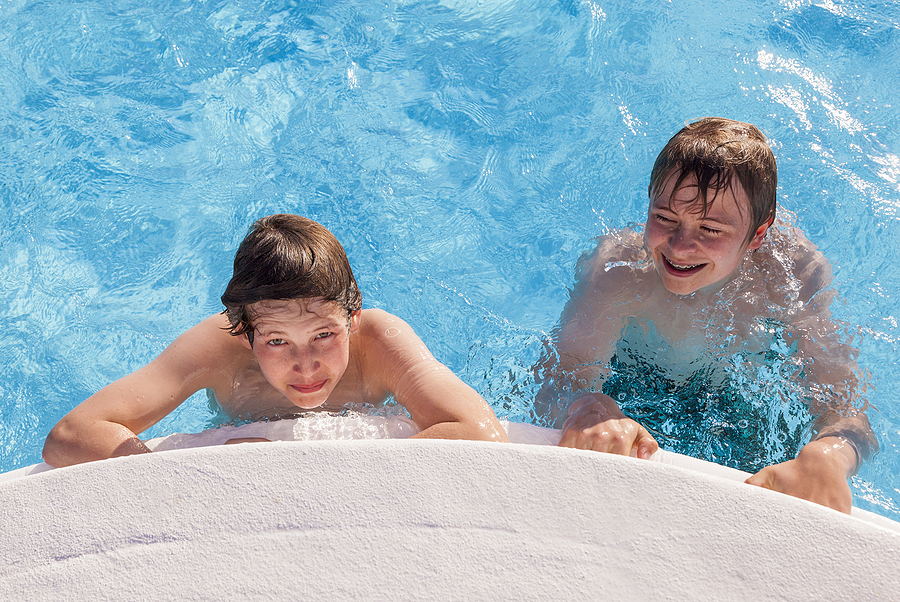 facility to see what was going on, and if I was needed for some reason. There were years of swim lessons and many active lifeguards, so I wasn’t concerned about actual swim safety issues, but more about social issues or something related to that. facility to see what was going on, and if I was needed for some reason. There were years of swim lessons and many active lifeguards, so I wasn’t concerned about actual swim safety issues, but more about social issues or something related to that.
After a few minutes of walking around, I spotted them both coming out of the waterslide area. Feeling relieved, I waved a bit to catch my son’s attention and let him know where I was at. In a normal encounter, he would typically rush to my side excitedly to tell me about the twists and turns of the slide. This time though, as his eyes locked with mine and he saw my excited wave, he dropped his gaze to the floor and then to his friend and began chatting with him instead. He literally ignored me for the first time ever.
This seems like a very odd moment to anticipate, even celebrate, but it felt like such a monumental shift in his life. It was a conscious move from total dependence on us, his parents, for his social life to a life outside of our immediate circle. His decision at that moment to ‘choose his friend’ was more sweet than bitter, for certain. I had many years of being ‘number one’ to him, but I also recognized the importance of the expansion of that circle for his quality of life. One that involved true friendships. I remember physically stopping short at the poolside, contemplating what had just happened. I had waited for this moment, and here it was.
As parents, we know that we are imperative to the quality of life that our children may experience. I try to do everything that I can do, within my 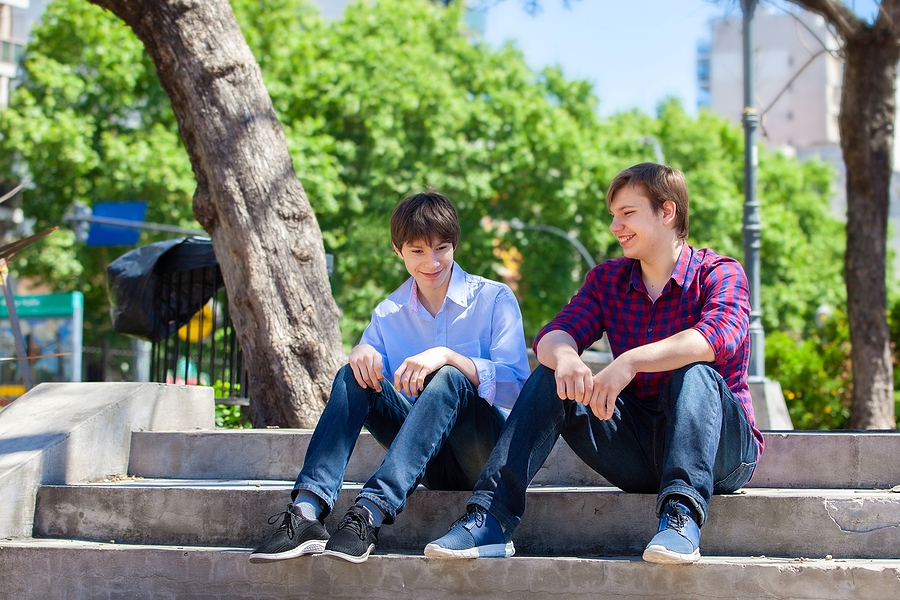 own time and talents, to ensure that his life is full and as happy as possible. But, in that journey, I know that I can not offer everything that he needs either. When I think back on my own life and growing up, I remember my parents for sure. But the life and laughter with my friend circles were of growing importance as I got older. I wondered what that would look like for him as he grew older and matured. Would it stay centralized around us? own time and talents, to ensure that his life is full and as happy as possible. But, in that journey, I know that I can not offer everything that he needs either. When I think back on my own life and growing up, I remember my parents for sure. But the life and laughter with my friend circles were of growing importance as I got older. I wondered what that would look like for him as he grew older and matured. Would it stay centralized around us?
The push and pull of life continue, with two steps forward and one step back (not always in that order). Parenting is a never-ending journey of joy and heartache. I always read reflections on living in the moment and enjoying the right now; don’t let worry rob you of today’s peace. This journey of parenting has been a road I did not know I would travel. It is these little moments along the way that stops me in my tracks, and lets me know we are on the right path overall. I am sure more moments such as this will continue, whether I am ready or not.
|
|
|
Centre for Autism Services Alberta
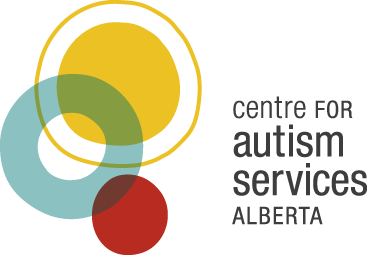
Fall is here to stay! Greetings from the Centre for Autism Services Alberta! The Centre has lots of great programs with ongoing enrollment!
- Thinking about getting a job? EmploymentWorks offers employment readiness training, job sampling, and work experience opportunities for individuals with a disability, including but not limited to autism. Participants must be motivated to seek employment. There are two phases to the program – a 60-hour phase of classes including the opportunity to try different jobs, and a second phase, made up of active engagement in the labour force, supported by our employment coaches and job club.
To inquire and to register, send us an email at EmploymentWorks. Start your job search today!
- PEERS for Teens is currently running this Fall 2022 and continues to recruit participants on an ongoing basis for upcoming sessions. Program for the Education and Enrichment of Relational Skills (PEERS) is a world-renowned, evidence-based social skills program for teens with autism aged 13 to 17. Teens and their parents, social coaches, or guardians meet weekly for 14 weeks. Developed by UCLA researchers, it is delivered by certified trainers in over 80 countries around the world, including at the Centre! And now with options for in-person (Edmonton) and digital delivery methods, this sought-after program is available Alberta-wide.
To learn more, visit our website here. To apply for PEERS for Teens, email us at teenandadult@centreforautismab.ca.
- PEERS for Young Adults is taking applications for our next round.
Program for the Education and Enrichment of Relational Skills (PEERS) is an innovative, evidence-based program designed for young adults with autism who want to learn how to develop and maintain healthy relationships. The skills taught in the PEERS program are essential for adulthood and can also help pave the way for securing meaningful employment. This program runs for 16 weeks, during which participants and their social coaches meet weekly. Developed by UCLA researchers, PEERS is delivered by certified trainers in over 80 countries around the world, including at the Centre! And now with options for in-person (Edmonton) and digital delivery methods, this sought-after program is available Alberta-wide.
To learn more, visit our website here. To apply for PEERS for Young Adults, email us at teenandadult@centreforautismab.ca.
|
|
|
Rethinking Social Skills
Maureen Bennie

From the Autism Awareness Centre Inc. Blog:
Over the years, my thoughts and opinions around social skills teaching have changed a great deal. Reading and listening to the viewpoints of autistic people has opened my eyes to the problems that social skills training can cause over time, such as masking. When autistic thinking and neurology are not taken into account, social skills tend to be taught to the neurotypical brain. Judy Endow expresses this point well in her blog post Autistic Processing of Social Information:
When I was younger and deemed “in need of help” that “help” largely involved others trying to teach me to think and act as if I had a typically wired brain. I was never very good at it because no matter how many therapeutic social skills situations I availed myself of because they were taught as if all participants had a neurotypical brain and my brain was not neurotypical, I mostly failed their learning agenda for me. My brain just plain works differently.
Sonny Jane, consultant and lived experience educator says:
“It’s not that being autistic affects our social skills. It’s that being autistic means we have a different way of socializing that needs to be understood and accommodated. Often, things we see as social skills are neurotypical expectations or rules, like making eye contact or making small talk.”
Judy Endow has helped me to understand why social skills programs have not worked for my autistic children who are now 25 and 23. While my children have learned many skills and improved, they continue to struggle in new social situations. My son loves being around people, and going out and about in the community, but he has communication difficulties and is echolalic. My daughter experiences high social anxiety when having to mix with people, even though she wants to be engaged and involved. My attitude now is about trying to understand and learn more about supporting their unique communication styles, thinking, how they express themselves, and how I can help them and the people they interact with make social situations satisfying experiences for them. going out and about in the community, but he has communication difficulties and is echolalic. My daughter experiences high social anxiety when having to mix with people, even though she wants to be engaged and involved. My attitude now is about trying to understand and learn more about supporting their unique communication styles, thinking, how they express themselves, and how I can help them and the people they interact with make social situations satisfying experiences for them.
What’s Missing from Social Skills Training
Social skills encompass several areas such as play skills, conversing, emotions, problem-solving, and friendships/relationships. They can help a person know how to act in different social situations, make friends, learn from others, develop leisure interests, foster relationships, and support mental health and well-being. However, we have to think about how we are going to support and interact with autistic people in social situations, respecting who they are and their communication style, which is comfortable and natural for them.
Ira Kraemer, an autistic self-advocate, created a list of 5 things that they feel are missing from most social skills training:
- Interoception and Alexithymia – Do I feel uncomfortable? What am I feeling?
- Sensory Recognition – Do I need sensory supports?
- Taking Action Based on Feelings – Do I need to leave the situation because I’m uncomfortable?
- Consent – Are the people around me listening to what I need and respecting my boundaries?
- Acceptance – Am I allowed to be myself around these people? Do I feel safe?
Ira says, “And here’s the main reason why “social skills training” makes no sense to me: There is no neurotypical formula for social interaction.” They also stated, “We need to be told that there is space for us, a place we can feel safe, and people we can trust. It’s up to you to help us find that, and not give us “training” that will subliminally blame us for living in an unaccommodating world.” Ira’s perspective has given me a lot to think about, because I never want to send the message that someone needs to change who they are to try and fit in.
The Double Empathy Problem
Dr. Damian Milton, an autistic researcher and lecturer in the UK, brings up the important point of the double empathy problem in social  interactions. He says, “Whilst it is true that autistic people can struggle to process and understand the intentions of others within social interactions, when one listens to the accounts of autistic people, one could say such problems are in both directions.” The issue of empathy problems between autistic and non-autistic people being mutual in character has led to the development of the ‘double empathy problem’ as a theory – and it makes sense. interactions. He says, “Whilst it is true that autistic people can struggle to process and understand the intentions of others within social interactions, when one listens to the accounts of autistic people, one could say such problems are in both directions.” The issue of empathy problems between autistic and non-autistic people being mutual in character has led to the development of the ‘double empathy problem’ as a theory – and it makes sense.
According to the theory of the ‘double empathy problem’, these issues are not due to autistic cognition alone, but a breakdown in reciprocity and mutual understanding that can happen between people with very differing ways of experiencing the world. If one has ever experienced a conversation with someone who one does not share a first language with, or even an interest in the topic of a conversation, one may experience something similar (albeit probably briefly).
Communication is a two-way street, and non-autistics also need to understand different communication styles in the neurodiverse world. Dr. Milton states that attempts to reduce autistic ‘symptomology’ may not lead to increased well-being, and the lack of understanding and resultant stigma felt by autistic people in social environments can then impact mental health, employment, accessing education and services, and experiences of the criminal justice system. It is minorities that are socially marginalized in the double empathy problem.
How can we support and improve social outcomes?
I think we can start by deepening our own understanding of autistic neurology. Peter Vermeulen in Belgium has written about autism as context blindness. His work demonstrates that the autistic brain tends to predict and treat prediction errors in an absolute rather than relative way. This is not good or bad… just different, but it has an impact on how a person understands and processes social information.
We can learn about alexithymia, which is a term that is used to describe when someone has difficulty identifying their feelings – or more specifically identifying and describing their emotions. Alexithymia doesn’t mean that a person lacks emotions, it just means that they have a hard time figuring out exactly what emotion they’re experiencing, and sometimes even putting words to that experience. Not understanding one’s emotions has a huge impact on social interactions.
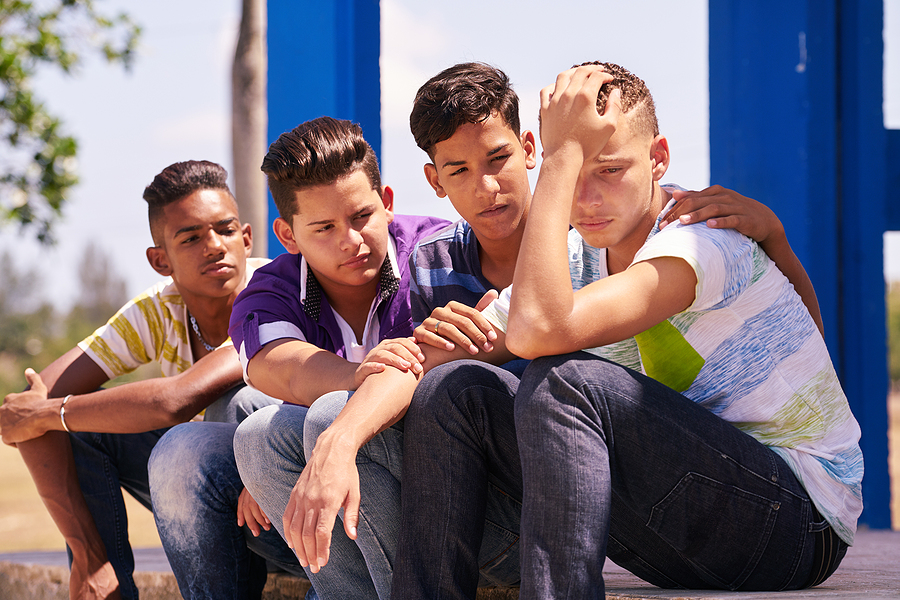
Teaching interoceptive awareness can help an autistic person identify the feelings they are having via their internal body signals. While this can take time to develop, the effort is worth it because the research shows that:
Within 8 – 10 weeks, there are:
- decreases in heart rate during interoception activity
- decreases in externalizing challenging behaviours
- increased engagement in learning
- increased prosocial behaviours - kindness, helpfulness, connections to others
Over 16+ weeks:
- decreases in stress
- helps with managing anxiety
- promotes caring and empathy
My daughter began to understand and interpret these internal body signals about 3 years ago, and her awareness continues to grow. She knows when she is anxious, and has her calming strategies in place for herself, accessing what she needs independently before things escalate. She also said something so revealing – that during elementary school she only felt two things: happiness and ‘blank’. Feeling ‘blank’ was part of the reason she withdrew from social interaction throughout her elementary years.

I would also look at Kari Dunn Buron’s work that supports systematic thinking. She is the co-creator of The Incredible 5-Point Scale. She has a newly updated book out for adolescents and young adults called Social Context and Self-Management: A System for Clarifying Social Information for Adolescents and Adults, which uses scales as a way of explaining social and emotional concepts to someone who might struggle with such information, but has a relative strength in understanding systems.
If you want to learn more about using systems to teach social and emotional information, consider watching Kari Dunn Buron’s webinar on this topic.
What Has Worked for Our Family
In hindsight, now that my children are young adults, I can see what really worked for their social engagement opportunities and skills, which also supported their happiness and well-being. For my daughter, the most effective things were:
- Reading aloud to a dog every week at a public library program starting at age 9
- Volunteering at an organization that supports her interest in cats
- Becoming a puppeteer at age 18
- Writing stories on the Wattpad website
- Participating in various community programs like adapted fitness, curling, yoga, and art classes
For my son, the most effective things were:
- Volunteering at a farmers' market, which also had the added benefit of expanding his limited diet
- Horseback riding
- Tutoring classes at the university
- Music classes
- Attending music concerts – you see the same people at most of those events and get to know them over time
- Drum circles
I’ve always taken my children everywhere with me, which has provided many teachable moments over the years. I’ll continue to write more on social skills in future blogs, as this is a vast and complex topic.
|
|
|
Society for Treatment of Autism

One topic that continues to arise among our counselling participants is a greater need for 2SLGBTQ+ supports that specifically relate to autism. Issues such as sexual health, consent, gender dysphoria, sexuality, healthy relationships, sensory preferences within sex, and more continue to emerge in our work with this population.
We are wanting to provide a safe space where peers can learn from professionals with lived experience, as well as from each other about issues relating to 2SLGBTQ+ identity. We are seeking funding from the Field Law Community Fund Program, in the hope of creating a 2SLGBTQ+ Sexuality and Gender Support Group to serve the autistic 2SLGBTQ+ community. Specifically, this group will include three elements.
- First, a psychoeducational component to educate participants on autism, gender identity, and sexuality, as well as the intersection of these three aspects of identity.
- Second, an expressive arts component, to help participants process and communicate their experiences through creative outlets, such as mask creation, movement, puppetry, role play, and joint artworks.
- Finally, it will include a support group element, where participants can share their experiences, offer and receive support, and build connections and community.
Please help us to be chosen for this funding by clicking here and voting for our project.
|
|
|
Autism Edmonton
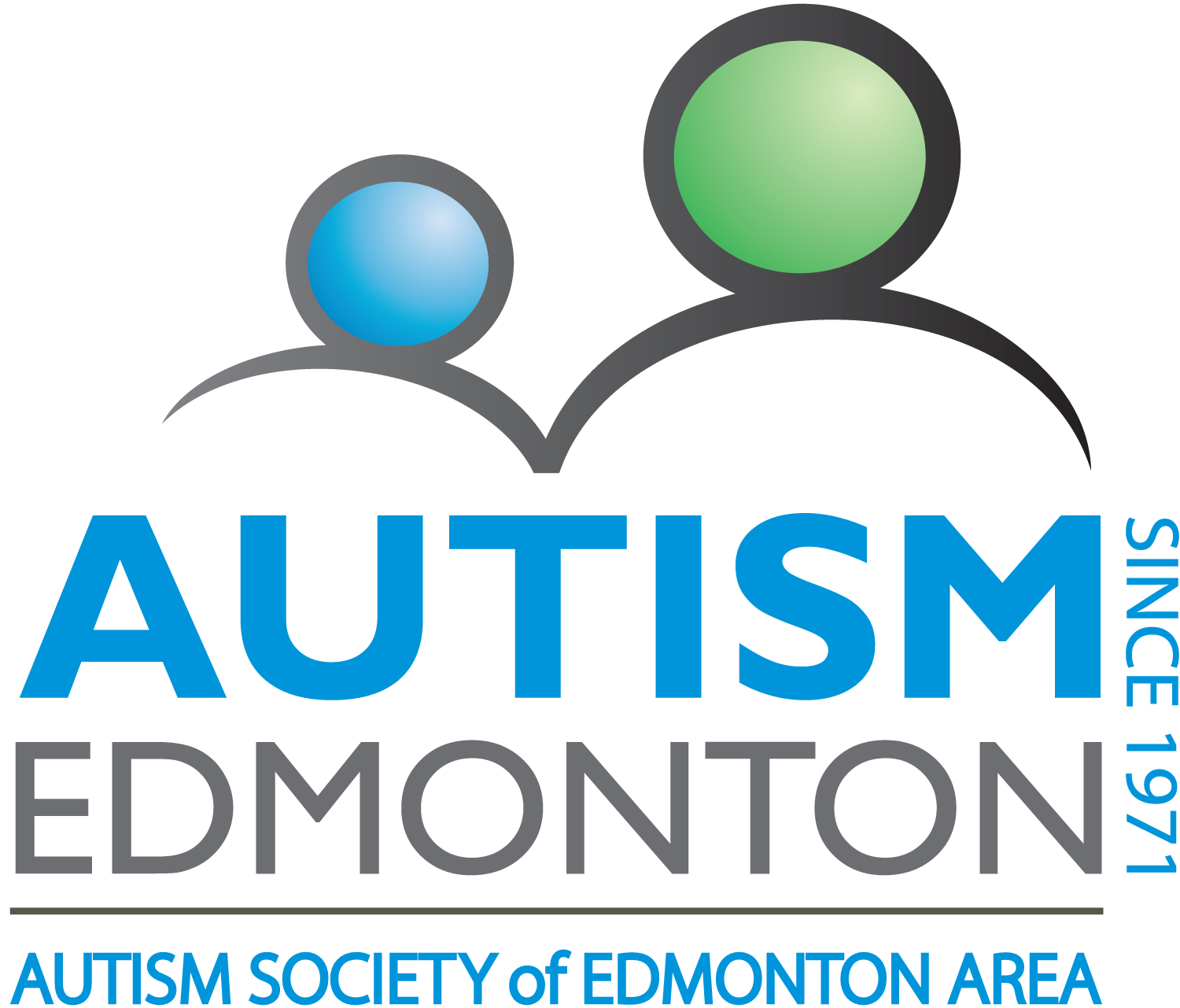
Autism Edmonton Gala a Big Success!

We are so thankful. Thank you to every single person, business, and organization who sponsored, donated, attended, volunteered, shared posts, and everything in between for this event.
From everyone at Autism Edmonton, thank you. It has been 3 years since we last were able to host this event, and as a fundraiser that funds our programs for two years, we couldn't be more grateful for the impact you have made on our community.
Our journey to creating understanding, compassionate, inclusive, and equitable communities is moving forward because of YOUR support, YOUR generosity, and YOUR belief in our mission and vision. We thank you, endlessly.
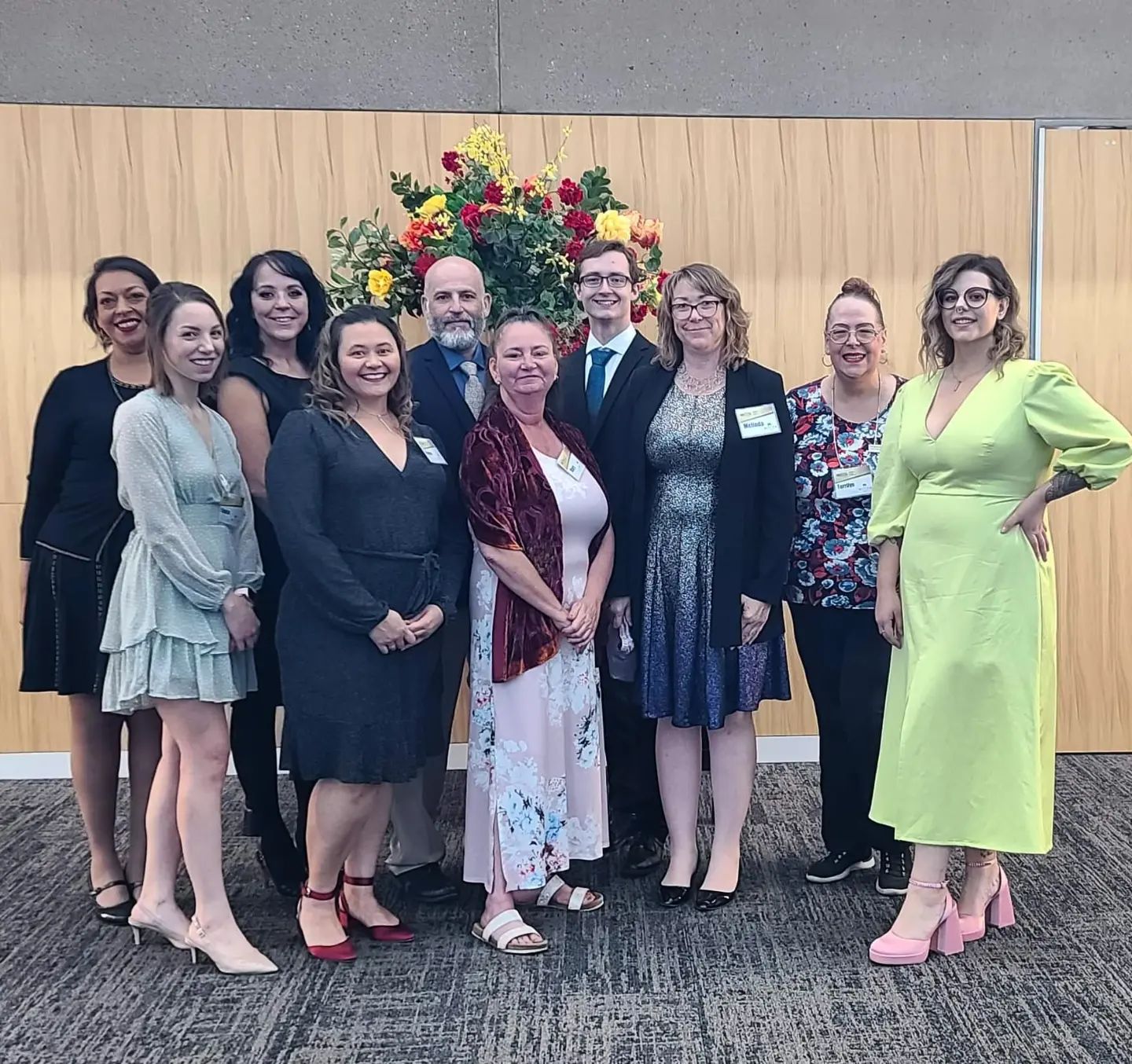
|
|
|
Meet ASA's Family Resource Coordinators
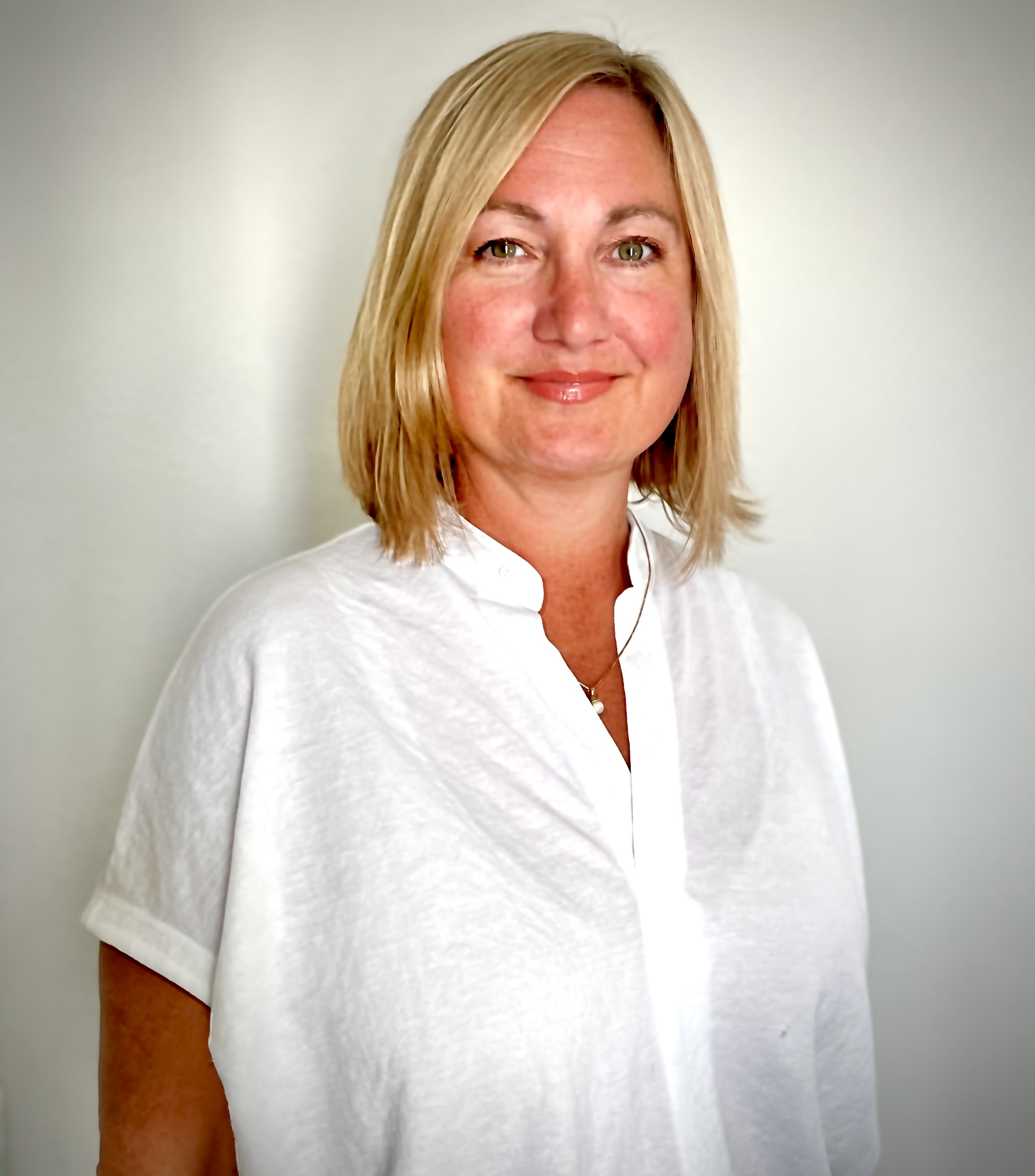
My name is Kate Bragoli, and I am excited to be part of the FRC Team as one of the two Family Resource Coordinators in Calgary. I live in Calgary with my husband, Ian, and our two lovely daughters. Our oldest, Ella, is attending the University of Calgary full-time, and also keeps herself very busy as a recreation programmer for the City of Calgary. My youngest daughter Charlotte, 19 years old this month, was first diagnosed as autistic and then given a diagnosis of Rett Syndrome. Charlotte continues to inspire us with her kindness and resilience. Before joining the Family Resource Centre, I was part of another amazing organization, the Sinneave Family Foundation, and worked in their Resource Centre for over ten years. In my new role, I hope to continue to provide support and learn from the many extraordinary members of our community.
You can reach Kate at kate@autismcalgary.org
|
|
|
|
|